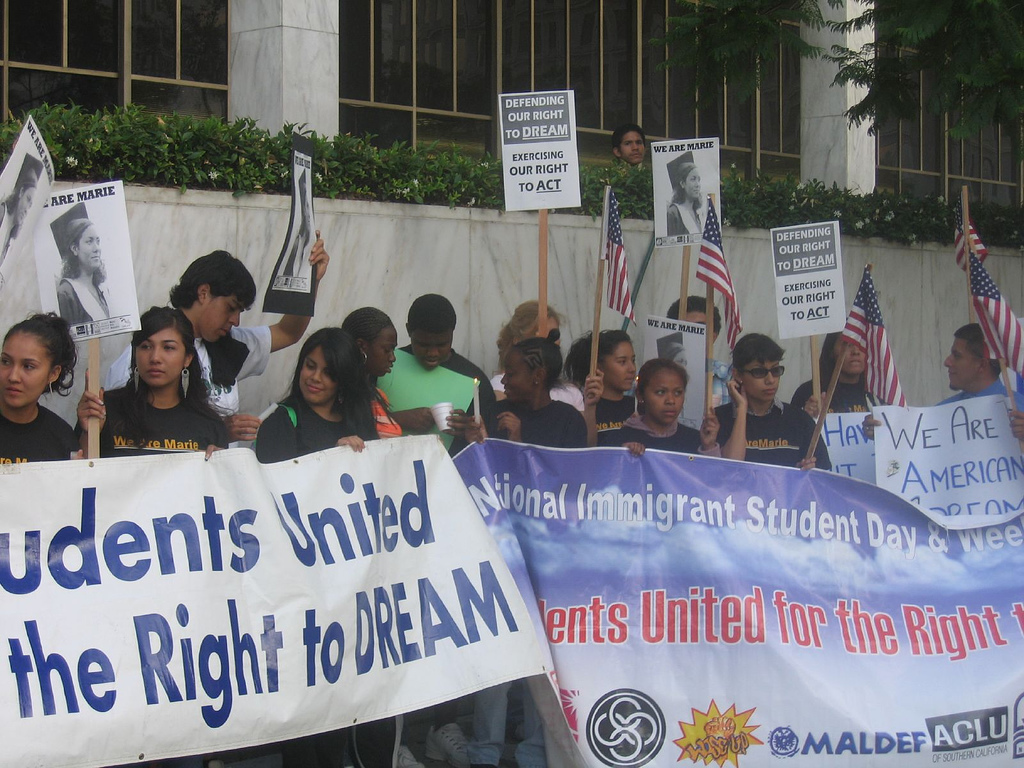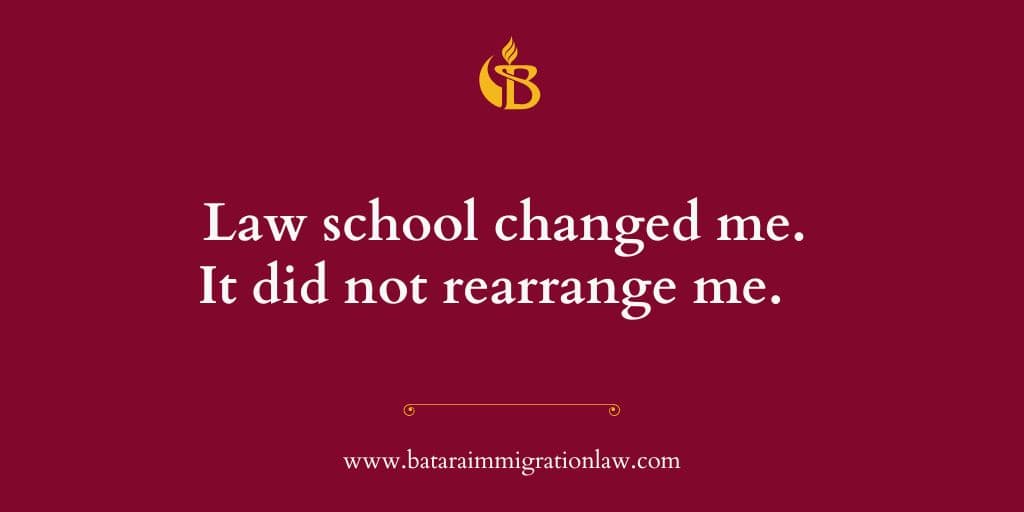
It all began when I was a teenager.
I began organizing student rallies calling for the adoption of multi-cultural textbooks and against the purchase on non-union grapes and lettuce.
The message was simple. Fight for what you believe is right.
My activities took me to a variety of campuses across School District lines. I understood the power of numbers for purposes of protest.
At the time, the notion that united we stand, divided we fall held a special attraction for me. Over time, however, I learned the idea of unity is more fantasy than reality, more cliché than substance.
We may be political bedfellows today . . . foes tomorrow.
How Social And Political Protest Works
Instead, when it comes to change, success often depends on a band of rebels, taking actions which shock the conscience of not only the public, but also those who hold authority.
The controversy begets the public debate.
The debate begets the political change.
It’s risky business.
My parents, humble folks from immigrant roots, did not endorse my civil disobedience inclinations. They feared adverse repercussions for me.
Nonetheless, they supported me 100%. They knew my actions were grounded on the principles they had taught – love, compassion, and justice.
And frankly speaking, it was their love for me, as well as my love for them, which kept my fires of protest burning even while establishment powers tried to extinguish them.
Eventually, the good guys won. The School Board changed its policies.
It was a long battle, but it was a battle whose success I never doubted.
Effective protest works that way.
A Parting Of The Political Waters
At the age of 18, my penchant for protest went political.
My history professor led me into Democratic Party headquarters. Within a few months, I was an accomplished precinct and get-out-the-vote coordinator for the Democratic Party.
By graduation, it was common during each election cycle to receive late night calls from candidates asking me to join their inner campaign circles.
My beliefs seemed to coincide with the Democratic Party platform.
I was fighting for what I believed was right.
When I went to law school, I restrained myself from joining grassroots battles on the East Coast. So almost as soon as I set foot in California again, I jumped back into local and state politics.
Less than six months later, I was marching in protests and organizing communities.
Law school had not changed my perception that law was too slow a vehicle to bring about social and economic change which society badly needed today.
Attorney friends were puzzled I did not dedicate myself to a legal career, instead opting for a dual role – one outside the system, the other inside the system.
They missed the commonality. In both roles, political and legal reform was at the top of my agenda.
I never sensed a contradiction.
Law school changed me. It did not rearrange me.

After more than a decade in this dual role, I walked away from political organizing.
I watched many Democratic allies, whom I had supported, change after winning. I saw them default over and over again on their promises to the public.
Being an insider, I was privy to the ugly reality that the Democratic Party had transformed into a sad caricature of its former self. Candidates were only marginally different from their Republican opponents, often for the worse – despite grandiose rhetoric to the contrary.
Having spent countless hours plotting how to get two-faced cowards elected, I decided my time would be better served focusing on the practice of deportation defense.
I could no longer match my values to Democratic Party policies.
The one-party blame game became an anachronism, inhibiting political progress.
After a few years away, my respite ended.
An activist can never completely walk away while there are still wars to be won.
On April 1, 1997, IIRAIRA became law.
There should have been massive protests from immigrant communities and their supporters before, during, and after its passage.
There were no Dreamers.
The Costs Of Political Subservience
A few years ago, a couple of Democratic Party financiers approached me with a proposition.
If I would come out of political campaigning retirement, they would bankroll my operation. They wanted me to take over organizing local Hispanic communities for the upcoming elections.
The idea fascinated me.
But not on their terms.
Yet, my passion for political activism had been reignited.
After pondering the subject for about two weeks, I un-retired. I decided to put together an independent grass roots effort to galvanize local Latino voters.
Local Democratic Party leaders began to contact me, one after another. I refused to organize under their banner.
Sure, I believed most Hispanics would vote Democrat. I would not persuade them to do so.
My agenda was to increase Latino turn-out.
Party organizing hacks were called in. Their arguments were at times polite, at times condescending. Some resorted to implied threats. I was more amused than angry.
Comic relief has its virtues.
These interactions reinforced my view that Latinos, like all immigrant communities, are mere election fodder for the Democratic Party.
I was no longer the naive young man who equated fighting for social justice with winning political campaigns.
As a Riverside immigration lawyer, I’ve witnessed the impact of IIRAIRA on immigrants and their family members.
To fight back, it is more important to encourage immigrant reform sympathizers to participate in the political process rather than to influence them about whom to support.
Placing the cart before the horse does not lead to political independence.
For without political independence, immigration reform becomes hostage to distortion and vulnerable to manipulation.
If the truth be told, political liberation is essential for immigration reform.
Why Outsiders Are Critical To
Immigration Reform
I am an organizer turned lawyer. I have operated in both worlds. I know, first hand, the roles of community organizers and immigration lawyers are not inherently incompatible.
Compassionate immigration reform will not happen without contributions from both camps.
Over the past 16+ years, for instance, lawyers have incrementally made significant progress fighting against IIRAIRA’s oppressive effects.
It has not been enough.
Detentions and deportations continue at record-breaking levels. ICE officers act as if they are above the law. Families are permanently separated and shattered.
Now comes S.744. It does little to address these issues, and will likely create more problems than it solves for many immigrants.
After all, the choice between demonizing deportation policies and exploitative economic practices is not a real choice.
Preventive politics is critical.
Nipping flawed legislation in the bud is preferable to fighting singular provisions piece-by-piece after it becomes law.
Independent outsiders – activists, agitators, organizers, Dreamers – are needed.
Unlike the relatively docile 1990s, they’re here today.
Led by a growing immigrant youth movement, outsiders have put Congress on notice.
Should S.744 or other similarly defective legislative package become law, future challenges will take place not only at appellate courts, but also at voting polls across the nation.
Without such dissent, reform discussions become empty homilies to political subservience.
Dreamers Deserve Our Support
Allow me to be clear.
In the current dispute between some Democratic Party leaders and their mainstream allies vis-à-vis the immigrant youth movement, I side with the outsiders.
My support for Dreamers is based on my experience in protest wars:
- Social protest and civil disobedience can bring political change
- The Democratic Party does not represent the best interests of immigrants
- The political subservience of immigrant communities must be severed
- Independent outsiders force insiders to rethink their agenda
These four points illustrate why the Dreamers are a threat to the status quo.
Absent the emergence of the immigrant youth movement, the dissent over S.744 would be as feeble as the protest over IIRAIRA.
The Dreamers have filled a huge vacuum in the immigration reform debate. Their bold approaches to highlighting unfair and unjust immigration policies should not be minimized.
Capturing the stern attention of political insiders is no easy matter.
It is not uncommon for activists to be criticized for tactics and strategies.
These bumps are the norm, not the exception, on the road to political change.
Therein lies my qualms about the recent attacks by Congressman Gutierrez and his cronies on the immigrant youth movement.
I might not have advised Dreamers to engage in some of their recent actions.
I’ll admit, I do not know their calculations. Yet, even if I disagreed with their calculations, I would still stand with them in their time of need.
Dreamers have earned that support.
When disputes over tactics and strategies turn into efforts to demean individuals, something is deeply awry behind the closed political doors. That’s a lesson I learned long ago.
In the world of logic, ad hominem attacks on individuals are well-known fallacies.
In politics, they are tools of destruction. And equally fallacious.
For these reasons, I question the motives of Gutierrez as well as his supporters.
Of course, I’m not a Democratic Party groupie.
Perhaps Gutierrez’s position is built on a firm base. Perhaps not.
Regardless, his public withdrawal of support for the Dreamers, especially as the reform debate grows increasingly acrimonious, is misplaced.
I support the Dreamers.
Join me.
By Carlos Batara, Immigration Law, Policy, And Politics




